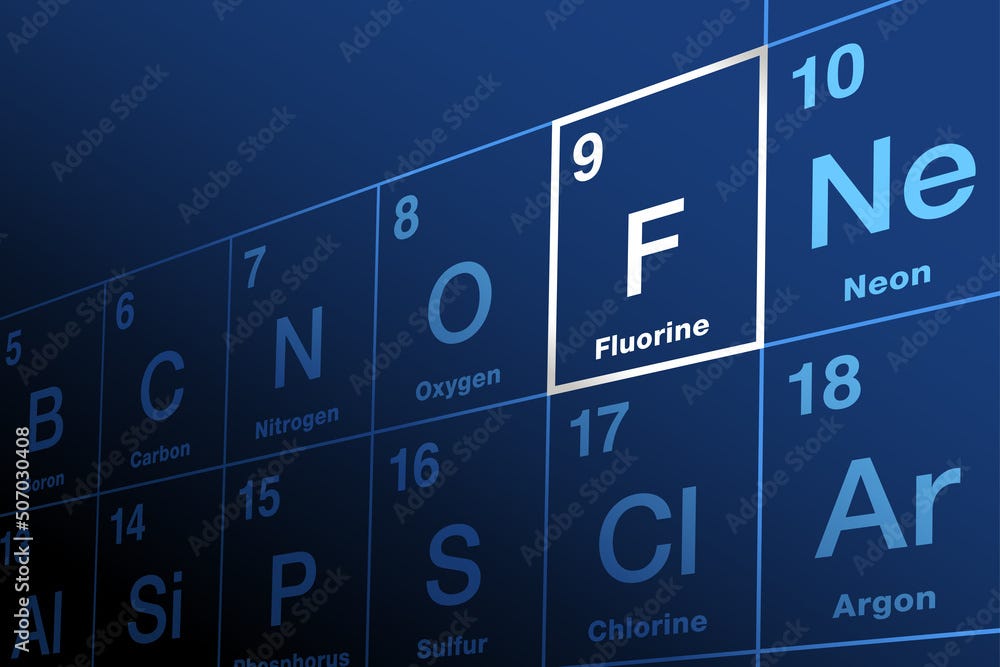One quarter of a tooth.
That's the estimated average benefit per person of water fluoridation, estimates a systematic review published in October by Cochrane. After looking at 157 studies, authors concluded that fluoridating a community's tap water slightly reduces the incidence of decayed, missing, and filled teeth.
Welcome to Part 3 of my fact check of BBC's fact check of RFK Jr’s views on health policy. In this post, we’ll zoom in on their section on Kennedy's "misleading claims” about fluoride.
BBC Verify is more confident about the virtues of water fluoridation than Cochrane’s systematic review mentioned above. They characterize the mineral as "recognised to protect teeth against decay." Just as in their section on vaccines, BBC Verify cites no scientific studies.
Instead, they link to two CDC informational webpages and quote two experts: a professor of dentistry and a representative of the British Fluoridation Society. The professor says, "the potential harmful effects of fluoride cited have not been associated with the very low levels of fluoride used in water fluoridation programmes”.
BBC Verify also refers to a report on the risks of fluoride as "highly controversial." However, they don't name the report, link to it, or explain the critiques of it.
Most European countries don’t fluoridate tap water
Many Americans incorrectly believe that most of Europe fluoridates its drinking water. In reality, only 2% of Europeans receive artificially fluoridated water.
The following countries are the only ones in the world where more than 50% of the population receives artificially fluoridated water:
USA
Canada
Ireland
Chile
Australia
Fluoride exposure and children’s IQ inversely correlated
In a meta-analysis published last month in JAMA Pediatrics, US researchers looked at 74 studies on the relationship between fluoride exposure and children's IQ scores. China, Canada, Denmark, India, Iran, Mexico, New Zealand, Pakistan, Spain, and Taiwan were represented. Sixty-four of those studies found an inverse association. The inverse association was found at concentrations lower than 4 mg/L, 2 mg/L, and even 1.5 mg/L. In addition, for every 1.5 mg/L increase in urinary fluoride, studies found an IQ decrease of more than one point (P < 0.001).
These findings contradict the claim of the dentistry professor quoted by BBC Verify.
Fluoridation vs. whole foods
Taking a step back, let’s consider, just for a moment, the amount of high fructose corn syrup in cafeteria lunches across the USA. Now let’s consider Kennedy's goal to give all US children access to healthier meals. Would a diet of whole foods save more than 1/4 tooth per child?
Ironically, this goal is the subject of the next section of BBC’s fact check. In Part 4, we'll look at the topic of ultra processed food.
References
Iheozor-Ejiofor Z, Walsh T, Lewis SR, Riley P, Boyers D, Clarkson JE, Worthington HV, Glenny A-M, O'Malley L. Water fluoridation for the prevention of dental caries. Cochrane Database of Systematic Reviews 2024, Issue 10. Art. No.: CD010856. DOI: 10.1002/14651858.CD010856.pub3
Taylor KW, Eftim SE, Sibrizzi CA, et al. Fluoride Exposure and Children’s IQ Scores: A Systematic Review and Meta-Analysis. JAMA Pediatr. Published online January 06, 2025. doi:10.1001/jamapediatrics.2024.5542





I was surprised by both fluoridated water's lack of efficacy against tooth decay and the inverse correlation to intelligence quotient. Growing up stateside, the prevailing sentiment regarding fluoridated water was positive. Decades ago, I was a staunch supporter.
I wonder if today's relative inefficacy is largely due to better oral hygiene in the general population, i.e. more folks brush with fluoridated toothpastes and floss much more regularly, such that there is much less room for the fluoride in the water to improve outcomes. Of course, fewer and fewer drink unfiltered tap water, as George Carlin noted 30 years ago. See https://www.youtube.com/watch?v=ahDCHP3Piu8
Thus, one may ask, are any modern improvements in dental hygiene truly attributable to fluoridated water?
I was also surprised to learn that Great Britain largely does not fluoridate its own water given the B.B.C.'s staunch position in favor of fluoridation. This discrepancy perhaps illustrates the B.B.C.'s motives in portraying the scientific consensus as irreconcilable with a particular foreign political appointee.
All this said, the fluoride in nearly all toothpastes dwarfs the fluoride in tap water by more than a thousand times. If there is a safety issue, to me anyway, it seems it would be paramount there.
Very interesting